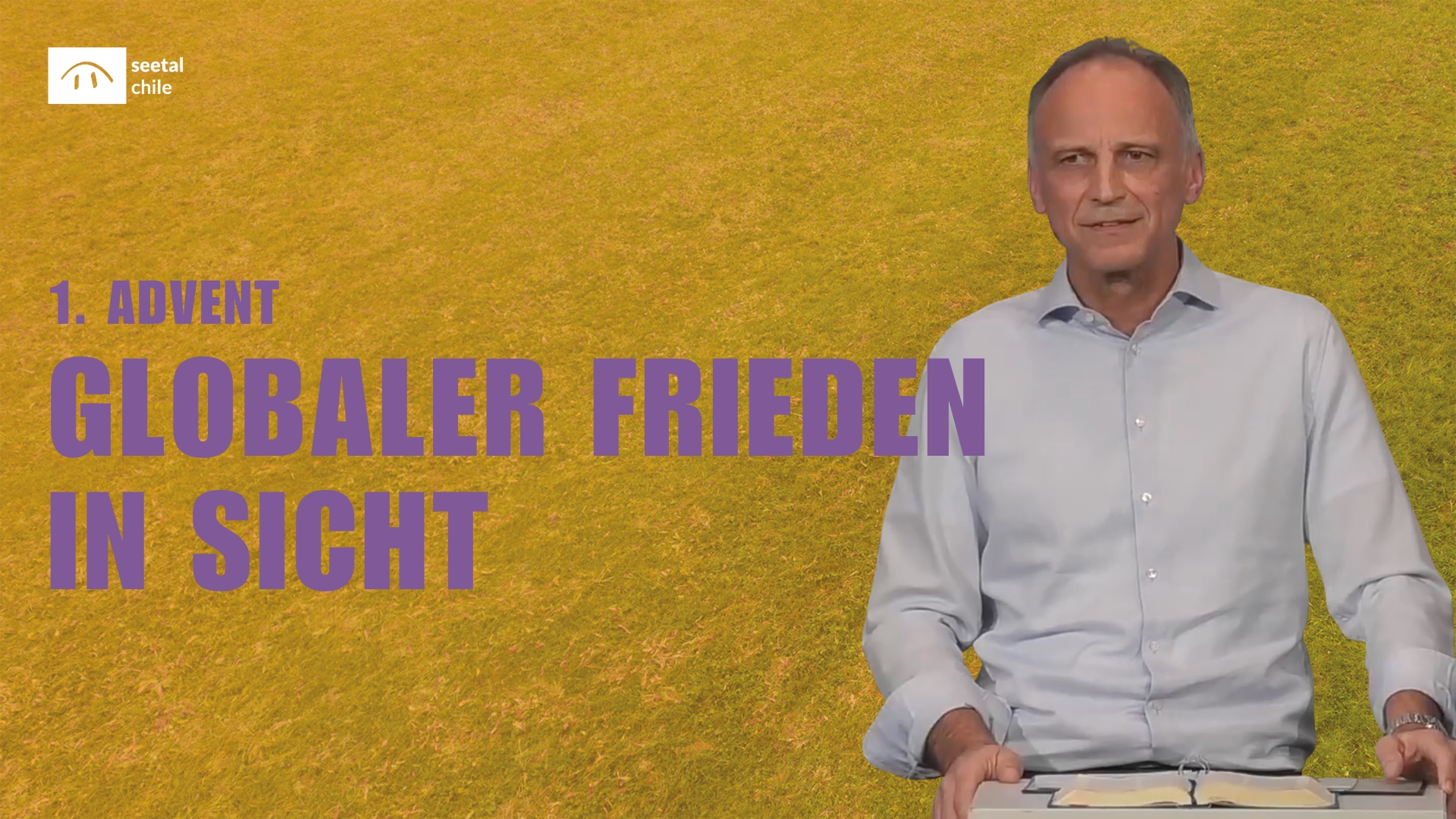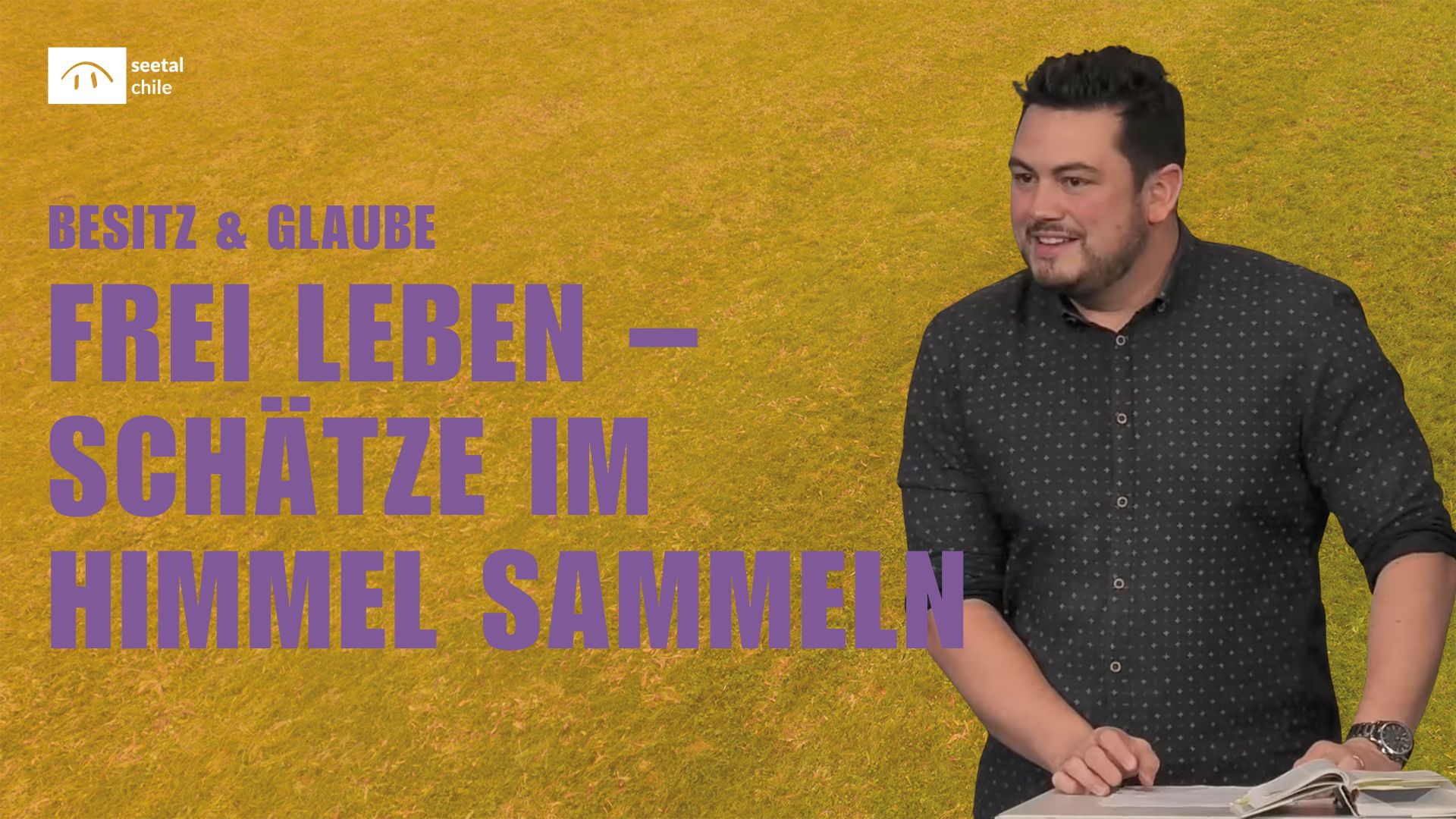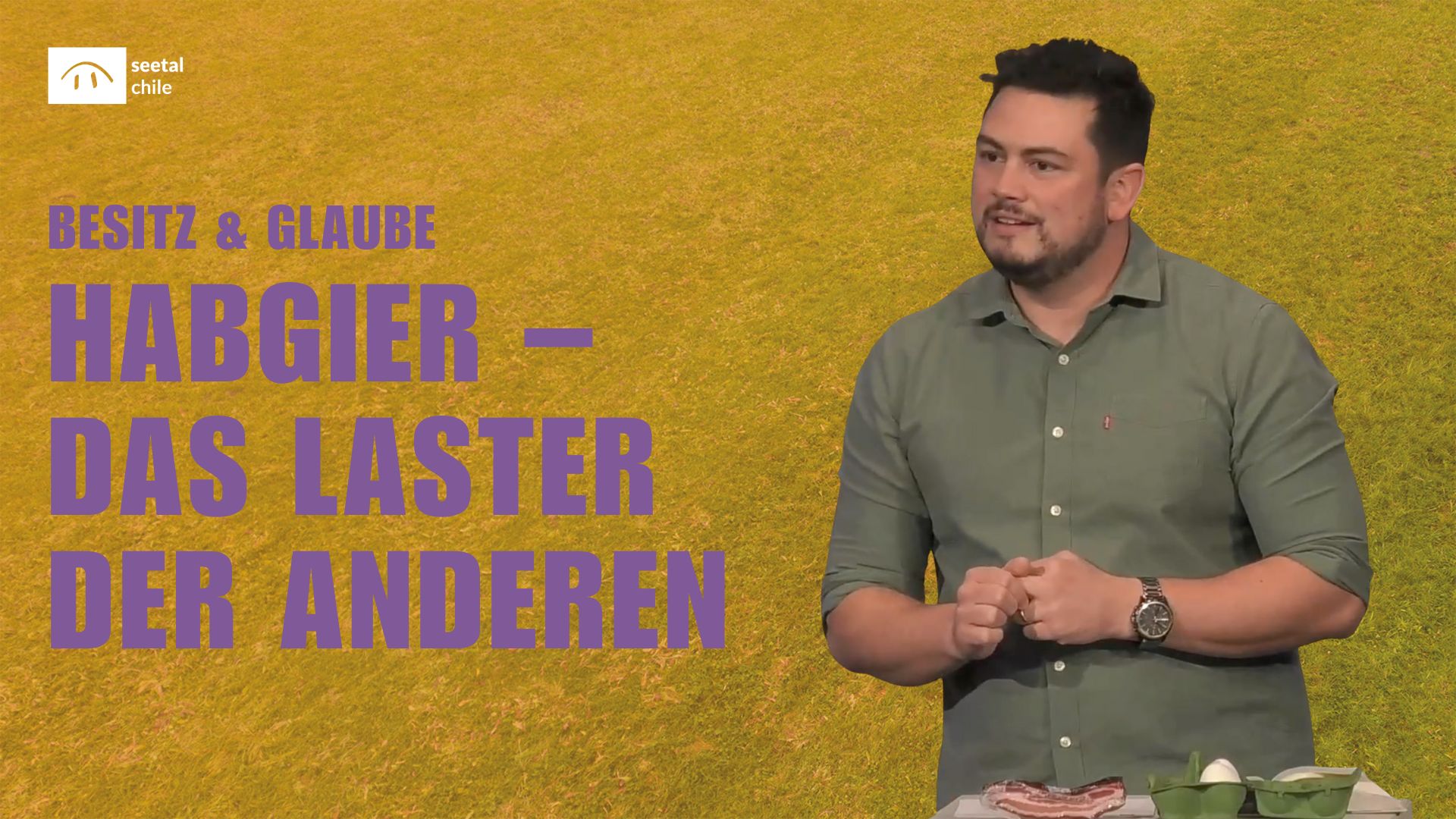Hezekiah – role model in trust
Series: Like you and me | Bible text: 2 Kings 18–20, 2 Chronicles 29–32
King Hezekiah had an extremely difficult inheritance to bear. His father did everything the Lord had forbidden. Hezekiah broke away from his family history and took a stand of his own. He burned all the idols and utensils of idolatry in the Kidron Valley and reintroduced worship. Characteristic of Hezekiah is his trust in God. Because of this, he succeeded in everything he did. When he was deathly ill, God gave him an additional 15 years of life. They were not good for him. He overestimated himself, which hindered his trust in God. The people of Israel had to bear the consequences after his death.
It is worth taking King Hezekiah (750 – 696 BC) as a model, for he was a well-heeled man. At well-to-do we understand successful and prosperous. That was Hezekiah. However, it comes from well-to-do from the Hebrew word batuach off, which trust means. «Hezekiah trusted (batuach) in the Lord, the God of Israel. Neither before nor after was there a king in the land of Judah like him»(2 Kings 18:5 NL). Can it be that people who trust God are blessed people?
Trust versus family tradition
Hezekiah’s father was called Ahaz. He tried everything to succeed. In the process, he introduced occult practices and sacrificed to various idols. Among other things, he even had his son burnt in the fire as a sacrifice. When he heard that there was just a great wave of success in Damascus, he had a priest flown in from there who had to produce the same deity in Jerusalem. Ahaz also promised himself success if he would sacrifice to this built god. In order to give this foreign deity the space it deserved, he had the entire temple area rebuilt. Although he left no stone unturned, he suffered one defeat after another. To his advantage, he also wanted to buy the great Assyrian empire. To get the money, he plundered the gold and silver from the temple. The money was gone, peace did not come. During this dark period, even the temple was closed. Services were no longer held, which was a frontal attack on the Jewish religion.
Hezekiah was born into this situation. It says about him: «In the very first month of his first year in office, Hezekiah had the doors of the house of the Lord unlocked and repaired. […] Our ancestors were unfaithful to the Lord and did what displeased our God. They forsook the Lord and his sanctuary; they turned their backs on him.» (2Chronicles 29:3,6 NL). From the beginning it becomes clear that Hezekiah wants to go a different way than his father. His trust began when he broke away from the family and broke with his father’s behaviour. It is noticeable that Hezekiah does not talk up or down about his father’s actions. He breaks with it because it was wrong. There are false dependencies in families that need to be broken. Never should we hide behind the behaviour of parents. «The children are not punished for the sins of the parents and the parents are not punished for the sins of the children. The righteous are rewarded for their righteousness, the ungodly are punished for their ungodliness»(Ezekiel 18:20 NL). We are not responsible for what our parents did, and ultimately for what our children do. Everyone is responsible for their own life and whether they take certain steps or not. Hezekiah was aware of this and lived accordingly. Quite often we have to take steps in our family if we want to grow in trust. This involves clearing up family histories, distancing oneself from certain things or, for example, detaching oneself from occult machinations.
Apart from solving the problem, it is also about taking a clear position of one’s own. Under Ahaz, thousands of people went to their deaths in unnecessary wars. Hezekiah took a stand and said, «We trust in God again.» As a result, a great blessing came upon the whole nation. It is also important for us to take a clear stand in the family. A great blessing will come from this.
Trust requires radical decisions
«He called all the priests and Levites to him and gathered them in the square to the east. He said to them: «You Levites, listen to me! Purify yourselves so that you can carry out your service again! Purify also the temple of the LORD, the God of your ancestors, and remove from the sanctuary everything that belongs to idolatry».» (2 Chronicles 29:4–5 Hfa). Hezekiah decided to trust in the living God again. This involved throwing out all the rubbish. «The priests went into the temple and carried everything that belonged to idolatry out into the outer court. The Levites took the objects and carried them away from the city to the Kidron Valley.» (2 Chronicles 29:16 Hfa). Hezekiah threw these utensils not only out of the temple precinct, but into the Kidron Valley outside the city. Unlike some of his predecessors, he cleaned up radically. He probably burned the idols so that they could never be reintroduced. For Hezekiah it was clear that such things had no place any more. In addition to this clearing out, he also broke away from the king of the Assyrians, to whom his father had sold himself. Hezekiah took the risk of standing up to this brutal world domination. He trusted the Lord and kicked out everything that hindered this trust.
Sometimes it also takes a consistent approach in our lives, throwing into the Kidron Valley the things that hinder worship, trust in God and communion with God in our lives. What hinders our trust in God? The consumption of media? Our prosperity and wealth? Our reputation? Let’s ask Jesus to shine a light on us and point out the things that diminish trust in Him – and then off to Kidron Valley with it!
«He had the high shrines destroyed, the memorial stones hewn down and the Asherah images overturned. He broke the bronze serpent that Moses had made because the people of Israel had begun to worship it by burning incense before it. The bronze serpent was called Nehushtan»(2 Kings 18:4 NL). Certain cults had become established in Israel that originally had a good purpose. The bronze snake was very important after the Exodus from Egypt. The people of Israel mutinied and were unfaithful, so God sent poisonous snakes. In distress, Moses cried out to God and was commissioned to erect a bronze serpent. Everyone who looked at this snake was healed (cf. Genesis 21). This is the serpent of life that can be seen at every pharmacy today. This serpent, which was reminiscent of a spiritual highlight, became a symbol of idolatry because people had forgotten that it was about trust towards the living God and not about the serpent itself. People idolised the serpent by giving it incense. I can imagine that Hezekiah faced a lot of resistance: «This snake saved the lives of our ancestors! You can’t just throw it away.»
There are also pious, religious things that prevent our trust in God. This can be a pastor with inspiring Youtube sermons, a good book that once spoke into our lives, even the Bible if I value it more than Jesus. So quickly we put our trust in a person or an ideology instead of God. Such things also need to be recognised and uprooted from the root. Hezekiah took a radical approach to such things.
The good news for us is that we no longer have to go to Kidron. 700 years after Hezekiah, there came one who also went out of the city. «So Jesus also suffered and died outside the city gates to sanctify his people through his shed blood» (Hebrews 13:12 NL). The same principle applies here: because filth belongs outside the city gate, Jesus had to suffer outside Jerusalem. Sin has no place near the sanctuary. Jesus took with him to the cross everything that wants to destroy our trust in God. We speak of sin. Sin does not primarily mean a moral offence, but sin is when I put my trust in something other than the living God. Jesus died so that we can have this relationship of trust: «His grace is so great that he bought our freedom with the blood of his Son, so that we are forgiven our sins»(Ephesians 1:7 NL). HE went to the cross that our trust in the living God might be restored.
Confidence versus overconfidence
«Therefore, the Lord was with him and gave him success in everything he undertook»(2 Kings 18:7 NL). Hezekiah trusted God and was thus a well-off man. After reigning for 14 years, he became deathly ill. He prays: «Remember, O Lord, how I have always been faithful to you with all my heart and have always done what pleased you. And Hezekiah wept bitterly»(2 Kings 20:3 NL). He was then told by the prophet Isaiah that the Lord wanted to add 15 years to his life. From that moment on, his motto was «one more». Isaiah put a fig cake on the ulcer and he got well. As if the extension of life was not enough, Hezekiah massaged himself to demand one more sign from God. In doing so, God not only reached deep into the «bag of tricks», but also into the geometry of the heavens. He changed the direction of the earth’s rotation so that the shadow of the sundial went back ten hours.
These events caused a huge stir far beyond the country’s borders. People came from all over to marvel at Hezekiah. Hezekiah could not handle fame well and provided confirmation of the proverb «pride comes before a fall». Suddenly, negative sentences about Hezekiah also appear: «But Hezekiah did not appreciate the kindness the Lord had shown him, but became arrogant» (2 Chronicles 32:25 NL). In the great prosperity, Hezekiah not only became richer and richer, but also prouder and prouder. He really let himself be admired. But then Isaiah had to make the following announcement on behalf of God: «Let the Lord tell you this: The time will come when everything you own – everything your ancestors have gathered to this day – will be brought to Babylon. Nothing will remain here, says the Lord. Your own descendants will be carried off. You will serve the king of Babylon there in the palace» (2 Kings 20:16–18 NL). Hezekiah humbled himself. The announced catastrophe is not cancelled, but only postponed – until after Hezekiah’s death. Did God perhaps even regret giving Hezekiah 15 extra years? In any case, during this time, which was marked by prosperity, success and answers to prayer, he fell into a self-overestimation that torpedoed his trust in the Lord.
The first 14 years of his ministry were challenging and difficult, but spiritually a time of flourishing. Hezekiah served God, trusted Him and relied fully on Him. The given extension of life of 15 years was a flourishing time worldly, but spiritually it was downhill. When everything goes smoothly in our lives and we are really successful, there is a great danger that we forget Jesus.. Difficult years in which we experience crises and suffering are often spiritually very valuable.
Trusting the living God is the best thing we can do. To do this, we have to detach ourselves from events in our family history and take a clear position ourselves. Then it is a matter of clearing out and disposing of all that hinders trust in God on the cross. Whoever trusts in the living God in this way is well-disposed. This is much more than wealth and honour. It is success. Success is walking in step with God.
Possible questions for the small groups
Read the Bible text: 2 Chronicles 29:1–11.15–19
- What does it mean to trust God?
- Hezekiah lived radically differently from his father. Are there also incidents in your family history from which you have to detach yourself?
- Have you taken a clear position in your family for a life with God? What is preventing you from doing so?
- What things in your life hinder you in your relationship with God? What does it mean today to burn them in the Kidron Valley?
- What is sin? What definition of sin is found in the sermon?





